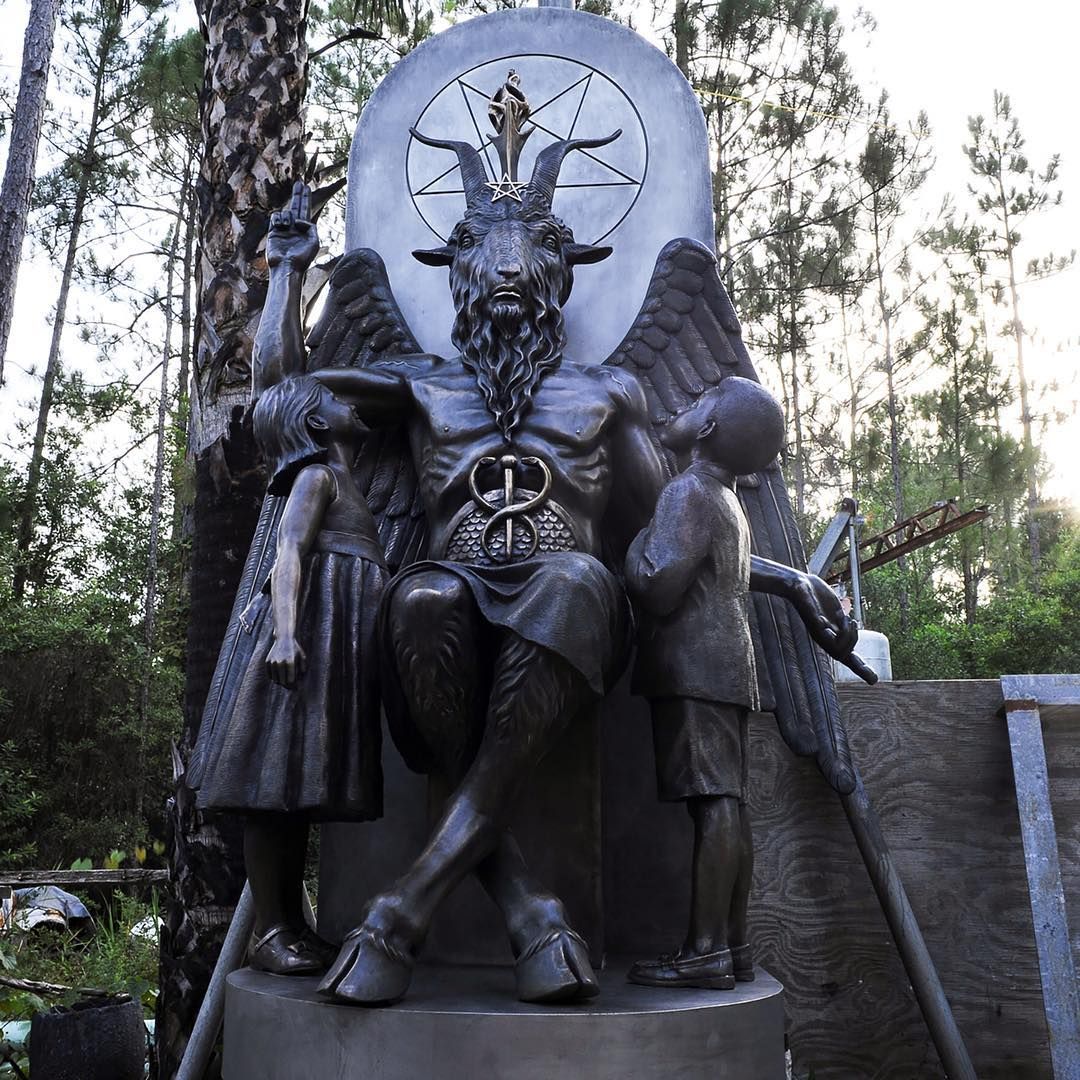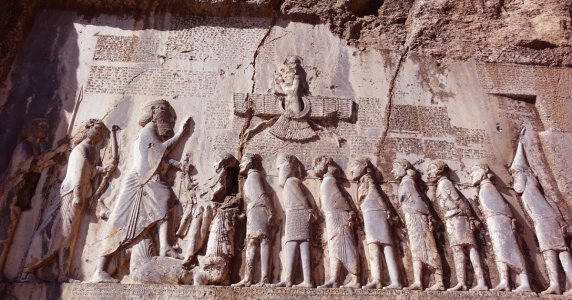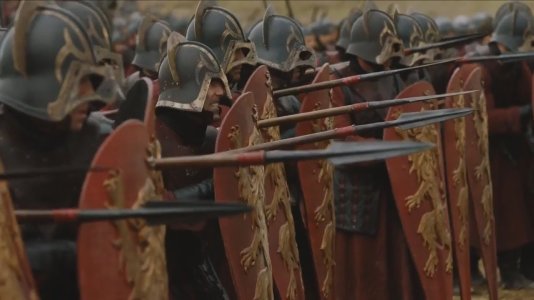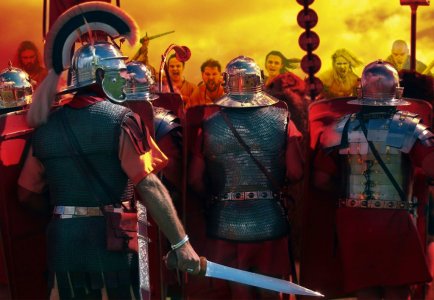- Mar 5, 2024
- 2,141
- 1,103
Fatalism: A Recipe For Defeat, Part 1
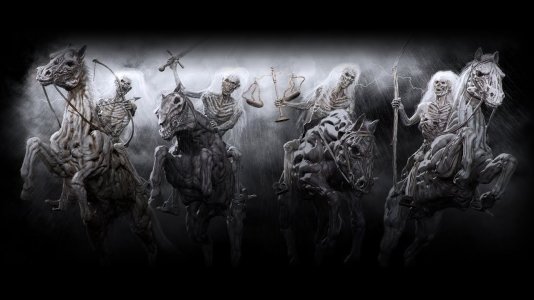
Disclaimer: Unlike concerning Gnostics and Jehovahs Witnesses, I count Calvinists to be genuine Christians and therefore treat them as brothers in Christ. Unfortunately, there are aspects to their theology that I hold to be detrimental to the faith, and are therefore addressed in this forum as a means of correcting and circumventing them.
Without mincing words, Calvinism is Fatalism, plain and simple. They flatly deny this because they want to distance themselves from any negative connotations, but it's really just a matter of semantics. I will get into this more in Part 3, but the point I wish to drive home in this series is that fatalistic thinking can unfortunately often lead to utter failure in the spiritual war, and should therefore NOT be embraced by the average Christian in the street under any circumstances.
The following is a Calvinist piece posted recently by a Christian friend over at another forum I am a member of. It is obviously well-intended, as on the surface it encourages trust in God. As this series will show, however, there is a fatalism behind Calvinist thinking that undermines fighting the good fight, and being "more than conquerors through Christ who strengthens us." It instead implies, "Trust that God is in control, and that what will be will be." Again, while it may not be intended, this mindset makes our fight against the world, the flesh and the Devil distinctly passive at best, and virtually non-existent at worst in some instances, and you will see this reflected in a number of their theological stances and teachings.
The following is a case in point (partially paraphrased):
“Your adversary the Devil prowls about like a roaring lion, seeking someone to devour. But resist him, firm in your faith, knowing that the same experiences of suffering are being accomplished by your brethren who are in the world” (1 Peter 5:8-9). Satan’s involvement in our sufferings and trials is under God’s control, which means our success against him is also in God’s sovereign hands... our responsibility is to recall that our own grand strategies of spiritual warfare, however relentless and innovative they might be, will not provide the vigilance Peter speaks of. Paul gives us a further example of the right kind of preparation when he describes the essence of spiritual warfare as “taking every thought captive to the obedience of Christ” (2 Cor. 10:5). If we heed the implications of those words, there’s really nothing else we need to have or do in combating the Devil.
Put another way, "Our spiritual battles are inevitably won already. You need not exert any energy other than simply believing that fact." For those of us living in the real world, however, this unfortunately comes off as incredibly naive. Certainly God's kingdom will prevail over Satan' when all is said and done, but as far as individual battles go, it is spiritual blindness to think a believer's actions and decisions will play no part in his own war, and whether it will be won or lost or not.
No army has ever won a battle by assuming victory was already theirs, so they never strategized, never trained, never armed themselves, never studied enemy tactics, and never even worried about fighting, because it had already been decided. In the natural this makes no sense whatsoever, but somehow when we get to the spiritual, the Calvinists think it makes perfect sense. It does not.
Paul instead taught that believers needed to actively participating in the spiritual war if they hoped to fight the good fight:
10 Finally, my brethren, be strong in the Lord and in the power of His might. 11 Put on the whole armor of God, that you may be able to stand against the wiles of the devil. 12 For we do not wrestle against flesh and blood, but against principalities, against powers, against the rulers of the darkness of this age, against spiritual hosts of wickedness in the heavenly places. 13 Therefore take up the whole armor of God, that you may be able to withstand in the evil day, and having done all, to stand. (Ephesians 6:10-13)
Did he tell them to simply make sure they're thinking "lined up with the word" here, or did he implore them to actually arm themselves with the weapons of our warfare? He would soon go on to urge them to give themselves to prayer, the very heart of spiritual warfare, and something he very obviously didn't think was in any way needless, irrelevant or unnecessary.
17 And take the helmet of salvation, and the sword of the Spirit, which is the word of God; 18 praying always with all prayer and supplication in the Spirit, being watchful to this end with all perseverance and supplication for all the saints— 19 and for me, that utterance may be given to me, that I may open my mouth boldly to make known the mystery of the gospel, 20 for which I am an ambassador in chains; that in it I may speak boldly, as I ought to speak.
Not only were they to pray for their own spiritual empowerment, Paul was asking them to pray for his as well, because he would need it if he were to open his mouth and preach the gospel with boldness as he should.
So it begs the question: If our own spiritual wars are already a foregone conclusion, why would Paul ask for the prayers of the saints? Fatalism would tell him, "What will be will be. God is in control, and all He wants is for you to align your thinking with that.." But that's clearly not what he was teaching them here. He was beseeching them for prayer lest he potentially not have the empowerment to wield the sword of the Spirit as he ought to, and deliver captives into the hands of the Lord Jesus Christ.
I chose an image of the Four Horsemen for this set of studies because the Calvinist mentality is in some ways a road to defeat. As I will explain, the dominant passages that discuss the victories the church will experience in the end-times are found in the Book of Joel, and since Calvinists dismiss this book as having nothing to do with end-time fulfillments, the only prophecies they regularly cling to (outside of those regarding the return of Christ) are those that predict terrible things are coming upon the church and the world. It results in an entirely defeatist mentality which is completely antithetical to genuine New Testament Christian teaching and practice, and in more ways that could even explained. But I will attempt to more in Part 2.
Blessings in Christ,
Hidden In Him

Disclaimer: Unlike concerning Gnostics and Jehovahs Witnesses, I count Calvinists to be genuine Christians and therefore treat them as brothers in Christ. Unfortunately, there are aspects to their theology that I hold to be detrimental to the faith, and are therefore addressed in this forum as a means of correcting and circumventing them.
Without mincing words, Calvinism is Fatalism, plain and simple. They flatly deny this because they want to distance themselves from any negative connotations, but it's really just a matter of semantics. I will get into this more in Part 3, but the point I wish to drive home in this series is that fatalistic thinking can unfortunately often lead to utter failure in the spiritual war, and should therefore NOT be embraced by the average Christian in the street under any circumstances.
The following is a Calvinist piece posted recently by a Christian friend over at another forum I am a member of. It is obviously well-intended, as on the surface it encourages trust in God. As this series will show, however, there is a fatalism behind Calvinist thinking that undermines fighting the good fight, and being "more than conquerors through Christ who strengthens us." It instead implies, "Trust that God is in control, and that what will be will be." Again, while it may not be intended, this mindset makes our fight against the world, the flesh and the Devil distinctly passive at best, and virtually non-existent at worst in some instances, and you will see this reflected in a number of their theological stances and teachings.
The following is a case in point (partially paraphrased):
“Your adversary the Devil prowls about like a roaring lion, seeking someone to devour. But resist him, firm in your faith, knowing that the same experiences of suffering are being accomplished by your brethren who are in the world” (1 Peter 5:8-9). Satan’s involvement in our sufferings and trials is under God’s control, which means our success against him is also in God’s sovereign hands... our responsibility is to recall that our own grand strategies of spiritual warfare, however relentless and innovative they might be, will not provide the vigilance Peter speaks of. Paul gives us a further example of the right kind of preparation when he describes the essence of spiritual warfare as “taking every thought captive to the obedience of Christ” (2 Cor. 10:5). If we heed the implications of those words, there’s really nothing else we need to have or do in combating the Devil.
Put another way, "Our spiritual battles are inevitably won already. You need not exert any energy other than simply believing that fact." For those of us living in the real world, however, this unfortunately comes off as incredibly naive. Certainly God's kingdom will prevail over Satan' when all is said and done, but as far as individual battles go, it is spiritual blindness to think a believer's actions and decisions will play no part in his own war, and whether it will be won or lost or not.
No army has ever won a battle by assuming victory was already theirs, so they never strategized, never trained, never armed themselves, never studied enemy tactics, and never even worried about fighting, because it had already been decided. In the natural this makes no sense whatsoever, but somehow when we get to the spiritual, the Calvinists think it makes perfect sense. It does not.
Paul instead taught that believers needed to actively participating in the spiritual war if they hoped to fight the good fight:
10 Finally, my brethren, be strong in the Lord and in the power of His might. 11 Put on the whole armor of God, that you may be able to stand against the wiles of the devil. 12 For we do not wrestle against flesh and blood, but against principalities, against powers, against the rulers of the darkness of this age, against spiritual hosts of wickedness in the heavenly places. 13 Therefore take up the whole armor of God, that you may be able to withstand in the evil day, and having done all, to stand. (Ephesians 6:10-13)
Did he tell them to simply make sure they're thinking "lined up with the word" here, or did he implore them to actually arm themselves with the weapons of our warfare? He would soon go on to urge them to give themselves to prayer, the very heart of spiritual warfare, and something he very obviously didn't think was in any way needless, irrelevant or unnecessary.
17 And take the helmet of salvation, and the sword of the Spirit, which is the word of God; 18 praying always with all prayer and supplication in the Spirit, being watchful to this end with all perseverance and supplication for all the saints— 19 and for me, that utterance may be given to me, that I may open my mouth boldly to make known the mystery of the gospel, 20 for which I am an ambassador in chains; that in it I may speak boldly, as I ought to speak.
Not only were they to pray for their own spiritual empowerment, Paul was asking them to pray for his as well, because he would need it if he were to open his mouth and preach the gospel with boldness as he should.
So it begs the question: If our own spiritual wars are already a foregone conclusion, why would Paul ask for the prayers of the saints? Fatalism would tell him, "What will be will be. God is in control, and all He wants is for you to align your thinking with that.." But that's clearly not what he was teaching them here. He was beseeching them for prayer lest he potentially not have the empowerment to wield the sword of the Spirit as he ought to, and deliver captives into the hands of the Lord Jesus Christ.
I chose an image of the Four Horsemen for this set of studies because the Calvinist mentality is in some ways a road to defeat. As I will explain, the dominant passages that discuss the victories the church will experience in the end-times are found in the Book of Joel, and since Calvinists dismiss this book as having nothing to do with end-time fulfillments, the only prophecies they regularly cling to (outside of those regarding the return of Christ) are those that predict terrible things are coming upon the church and the world. It results in an entirely defeatist mentality which is completely antithetical to genuine New Testament Christian teaching and practice, and in more ways that could even explained. But I will attempt to more in Part 2.
Blessings in Christ,
Hidden In Him




